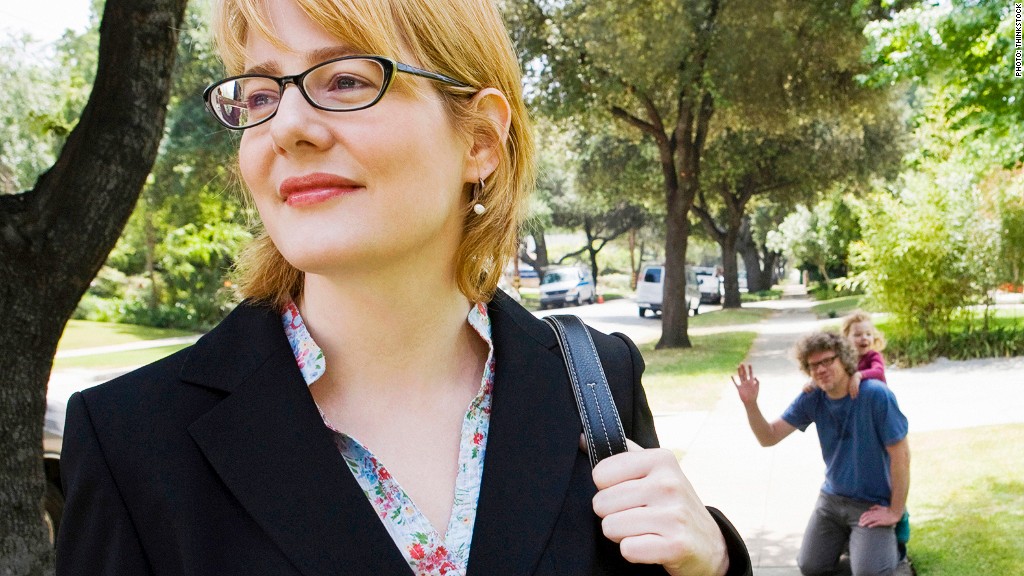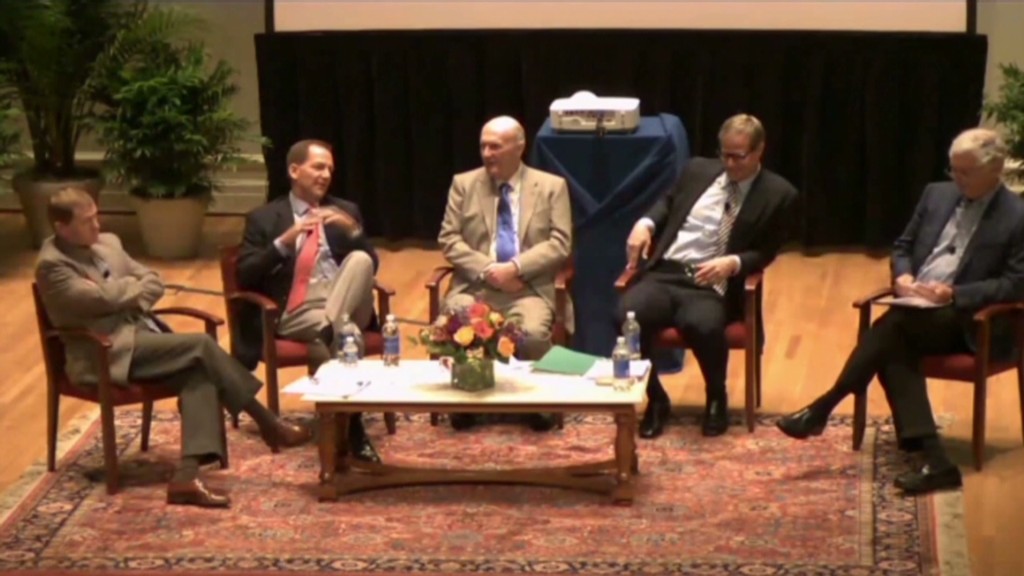
Moms are the sole or primary breadwinner in four out of 10 households with children, a record high according to an analysis of U.S. Census data by the Pew Research Center.
But that doesn't mean Americans approve.
Pew researchers surveyed about 1,000 Americans last month and found that 51% believe children are better off when a mom stays home with the kids and doesn't hold a job. Only about 8% say the same about fathers.
Half also said the increase in the number of women working for pay has made it harder for marriages to succeed. On the other hand, two thirds said it has made it easier for families to live more comfortably.
Curiously, 79% rejected the idea that women should return to their "traditional roles."
"The public remains of two minds about the gains mothers have made in the workplace -- most recognize the clear economic benefits to families, but many voice concerns about the toll that having a working mother may take on children or even marriage," the report said.
In 1960, only 11% of households were led by breadwinnner moms. But over the past 50 years, more women have entered the labor force. There has also been an increase in single mothers -- who have no choice but to be the breadwinner in their family.
In 2011, roughly two thirds, or 8.6 million, of breadwinner moms were single women. The other third, or 5.1 million, were married women who earn more than their husbands.
Related: Women are breaking through the 'concrete ceiling'
Meanwhile, the gap between single and married moms is substantial, in both earnings and demographics.
Families led by single mothers earned a median $23,000 in 2011, according to Census data. In homes where married mothers out-earned their husbands, the median family income was $80,000 in 2011.

Single mothers are also less likely to have a college degree, tend to be younger and are more likely to be black or Hispanic, whereas the married moms tend to be older, disproportionally white and college educated.
The Pew study also found that attitudes toward single mothers are still predominantly negative, although less so than just six years ago. About 64% of the people surveyed said the growing number of single moms is a "big problem," down from 71% who felt that way in 2007.


